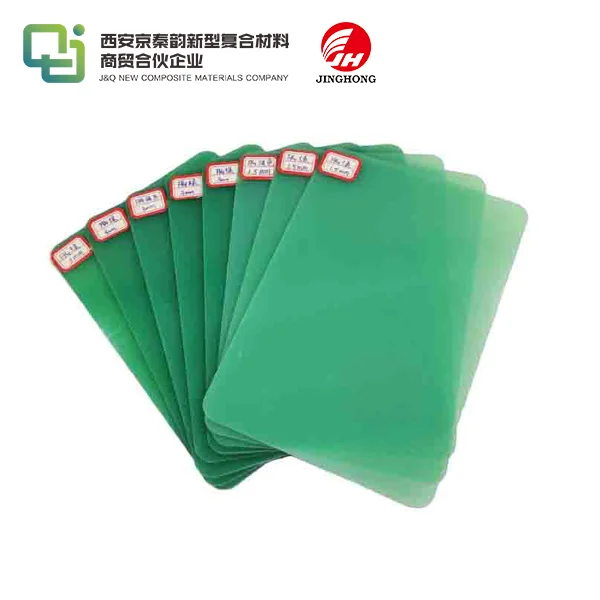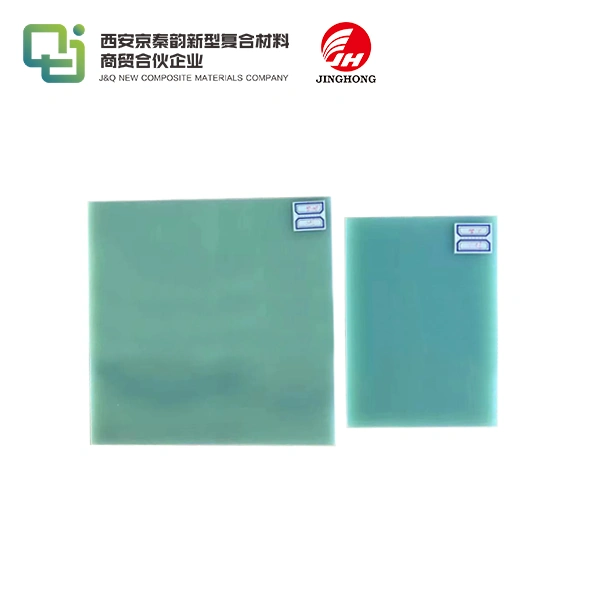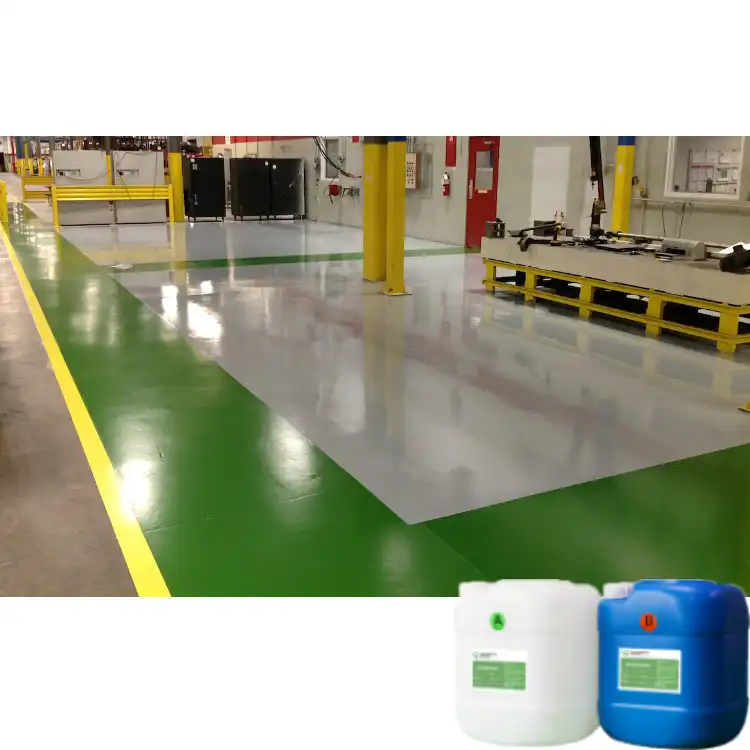How Do 3240 Epoxy Sheets Enhance Electrical Equipment Safety?
2024-07-02 16:04:10
Introduction
In the realm of electrical hardware, wellbeing is central. Electrical components' construction and insulation materials play a crucial role in preventing hazards like electrical fires and malfunctions and ensuring reliable performance. The 3240 epoxy sheet is one such material that has gained popularity due to its superior safety features. These sheets are famous for their great mechanical, warm, and electrical properties. In this blog, we will focus on how the insulating, flame retardant, and durable 3240 epoxy sheets improve the safety of electrical equipment.
What Are the Insulating Properties of 3240 Epoxy Sheets?
1.Electrical Protection
The essential capability of 3240 epoxy sheets in electrical hardware is to give protection. Short circuits and electrical shocks, which can damage equipment and pose serious safety risks to users, can be prevented by using electrical insulation.
- High Dielectric Strength: The dielectric strength of 3240 epoxy sheets is high, typically between 10 and 20 kV/mm. This property permits the material to endure high voltages without separating, guaranteeing dependable protection in high-voltage applications.
- Low Electrical Conductivity: These sheets have exceptionally low electrical conductivity, making them ideal for use in protecting parts and forestalling accidental flow stream. This keeps up with the respectability of electrical circuits and lessens the gamble of shortcircuits.
- Warm Dependability: The warm strength of the product guarantees that their protecting properties stay powerful even at raised temperatures. This is especially important in situations where electrical components produce a lot of heat while in use.
2.Application in Electrical Parts
3240 epoxy sheets are utilized in various electrical parts to improve security and execution:
- PCBs, or printed circuit boards, are: Materials that can provide both mechanical support and electrical insulation are frequently required for PCBs. It is utilized as base materials for PCBs, guaranteeing dependable protection between conductive layers and parts.
- Transformers and Engines: Insulation materials in electric motors and transformers must withstand thermal stresses and high voltages. The insulation that is required is provided by epoxy sheet, which keeps electrical malfunctions at bay and ensures effective operation.
- Control Panels and Switch Equipment: Insulation materials are used in switchgear and control panels to prevent electrical faults and guarantee safe operation. In these applications, It is used to increase safety and provide dependable insulation.

How Do 3240 Epoxy Sheets Provide Flame Retardancy?
1.Flame Retardant Sythesis
One of the key security elements of 3240 epoxy sheets is their fire resistant properties. In environments where electrical components are exposed to high temperatures or potential ignition sources, flame retardancy is essential for preventing fire spread.
- Glass and Epoxy Resin Fabric: 3240 epoxy sheets are produced using a mix of epoxy sap and woven glass texture. The epoxy sap is frequently figured out with fire resistant added substances, for example, brominated mixtures or phosphorus-based compounds. These added substances upgrade the material's protection from start and ignition.
- Formation of Char: When presented to high temperatures, the epoxy tar in 3240 sheets can frame a defensive roast layer. This char acts as a barrier, stifling combustion and preventing flames from spreading.
- Heat Retention: Endothermally, some flame retardant additives decompose, absorbing heat and cooling the combustion zone. The material is prevented from reaching its ignition point as a result of this.
2.Standards and Certificates
The fire resistant properties of 3240 epoxy sheets are approved through different norms and certificates:
- UL 94: Materials are categorized using the Underwriters Laboratories (UL) 94 test based on how they burn. Most of the time, it get a rating of V-0, which means that they stop burning in ten seconds and don't drip flaming particles. This elevated degree of fire retardancy is basic for guaranteeing security in electrical applications.
- ASTM E84: The materials' smoke development index and flame spread are measured using the ASTM E84 test. it normally display low fire spread and smoke creation, making them appropriate for use in conditions with severe fire wellbeing prerequisites.
3.Applications in Fire-Delicate Conditions
The fire resistant properties of 3240 epoxy sheets make them reasonable for use in different fire-delicate conditions:
- Data Facilities: Electrical components like servers and networking equipment in data centers produce a lot of heat. In these conditions, the use of flame-retardant 3240 epoxy sheets safeguards valuable equipment and aids in the prevention of fire spread.
- Public Facilities: In open structures, materials utilized in electrical establishments should fulfill severe fire wellbeing guidelines. It is utilized in electrical boards, nooks, and different parts to guarantee consistence with fire wellbeing guidelines.
- Transportation: In the transportation business, electrical frameworks in vehicles, trains, and airplane should be safeguarded against fire dangers. The necessary flame retardancy is provided by 3240 epoxy sheets, enhancing passenger and equipment safety.
How Durable Are 3240 Epoxy Sheets in Harsh Environments?
1.Mechanical Strength
Strength is a basic calculate guaranteeing the drawn out wellbeing and dependability of electrical hardware. Epoxy sheet is known for their great mechanical strength, which adds to their sturdiness in brutal conditions.
- High Compressive and Tensile Strength: It show high malleable and compressive strength, making them impervious to mechanical burdens and disfigurement. This guarantees that the sheets can endure the afflictions of cruel working circumstances without undermining their protecting and fire resistant properties.
- Resistance to Impact: These sheets additionally have great effect opposition, permitting them to retain and scatter mechanical shocks. This is especially important in situations where the equipment is affected by physical impacts or vibrations.
2. Chemical Resistant
The 3240 epoxy sheets have excellent chemical resistance in addition to their mechanical strength. This is essential for applications in settings where people frequently come into contact with oils, chemicals, and other corrosive substances.
- Protection from Synthetics and Solvents: It imperviou to a great many synthetic compounds and solvents, including acids, soluble bases, and hydrocarbons. Even in corrosive environments, the sheets' integrity and performance are guaranteed by this resistance.
- Security Against Dampness and Stickiness: Additionally, the sheets shield the material from moisture and humidity, preventing water absorption and the consequent deterioration of electrical and mechanical properties. This is especially crucial in marine and outdoor applications.
3.Thermal and Natural Strength
The warm and natural strength of 3240 epoxy sheet further improves their sturdiness in unforgiving conditions:
- Wide Temperature Reach: It made of 3240 can function efficiently at temperatures ranging typically from -40°C to 150°C. The sheets are guaranteed to keep their properties and performance even in extreme cold and heat thanks to their thermal stability.
- UV Stability: The sheets are additionally impervious to UV radiation, forestalling corruption and staining when presented to daylight. Because of this, they are appropriate for use in outdoor settings where prolonged exposure to UV rays is a concern.
4. Case Studies and Real-World Uses
(1) Industrial Equipment
In industrial settings, electrical equipment frequently experiences harsh operating conditions, such as mechanical stresses, chemicals, and extreme temperatures. It is used in a variety of industrial applications to improve safety and durability:
- Electrical Buildings: It is utilized to develop electrical nooks that shield delicate parts from mechanical harm, compound openness, and warm pressure. This guarantees the solid situation of gear in unforgiving modern conditions.
- Panels of Control: In control boards, it give protection and security to electrical parts, upgrading the wellbeing and sturdiness of the hardware.
(2) Marine Applications
Electrical equipment must withstand saltwater, humidity, and UV radiation in marine environments. It is utilized in marine applications to guarantee long haul sturdiness and security:
- Electrical Systems for Boats: The sheets are used as insulation and protection against the harsh marine environment in boat electrical systems. In marine applications, their dependability is ensured by their resistance to moisture, chemicals, and ultraviolet radiation.
- Seaward Stages: In seaward oil and gas stages, electrical hardware is presented to outrageous circumstances, including saltwater, synthetic substances, and high temperatures. The durability and protection that are required to guarantee the safety and dependability of electrical systems in these environments are provided by 3240 epoxy sheets.
Conclusion
The strength of 3240 epoxy sheet in cruel conditions is a critical calculate upgrading the security and unwavering quality of electrical hardware. They are suitable for a wide range of applications due to their mechanical strength, chemical resistance, and thermal stability, ensuring long-term performance and protection from harsh operating conditions.
References
1. DuPont. "Epoxy Resins Technical Data." DuPont. https://www.dupont.com/epoxy-resins.html
2. 3M. "Electrical Insulating Materials." 3M. https://www.3m.com/electrical-insulating-materials
3. Siemens. "Insulating Materials in Electrical Equipment." Siemens. https://www.siemens.com/insulating-materials
4. BASF. "Flame Retardant Epoxy Resins." BASF. https://www.basf.com/flame-retardant-epoxy
5. UL. "Flame Retardant Standards." Underwriters Laboratories. https://www.ul.com/flame-retardant-standards
6. Dow Chemical. "Epoxy Resins for Industrial Applications." Dow Chemical. https://www.dow.com/epoxy-resins-industrial
7. ExxonMobil. "Advanced Materials for Electrical Insulation." ExxonMobil. https://www.exxonmobil.com/electrical-insulation
8. GE. "High-Performance Flame Retardant Epoxy Resins." GE. https://www.ge.com/high-performance-flame-retardant
9. Shell. "Materials for Marine Safety." Shell. https://www.shell.com/marine-safety
10. Solvay. "Epoxy Systems for Harsh Environments." Solvay. https://www.solvay.com/epoxy-systems-harsh-environments





_1740986340093.webp)

